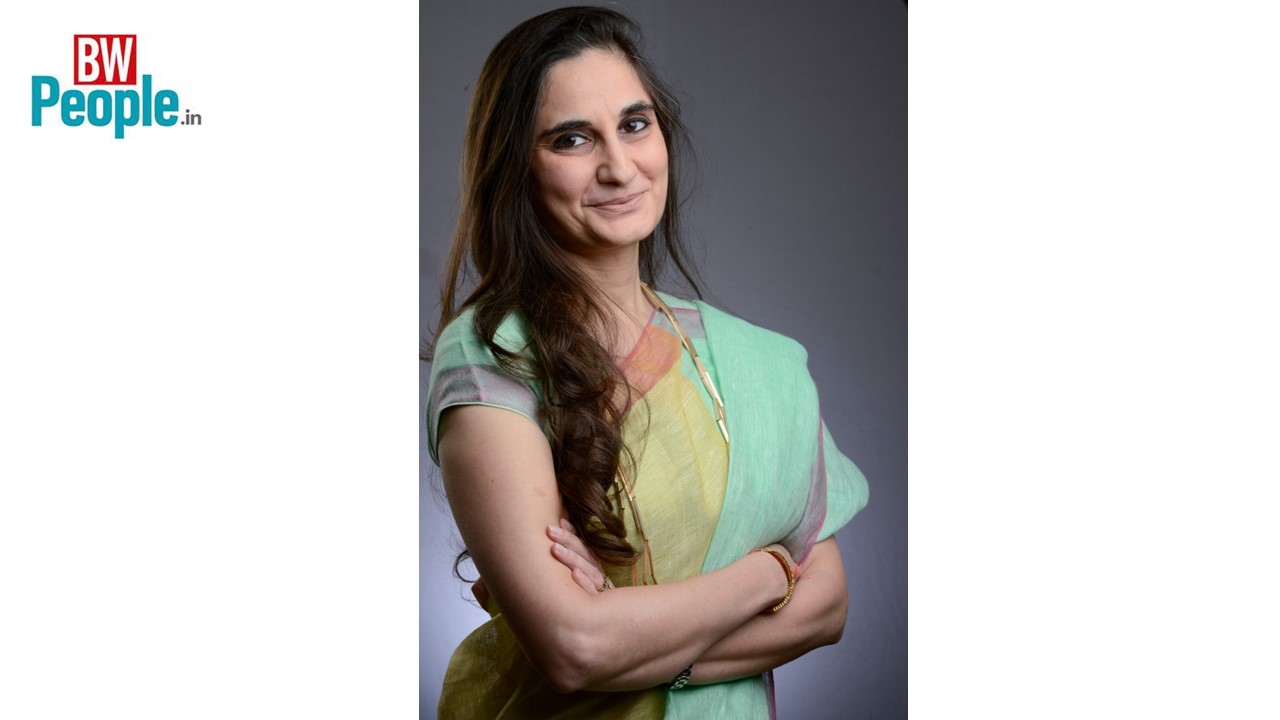- Talent Management
- Movements
- Employee Experience & Culture
- Work Life Balance
- Learning & Development
- More
- Talent Management
- Movements
- Employee Experience & Culture
- Performance Management
- Compensation and Benefits
- Hiring Firing
- Employee Wellbeing & Safety
- Diversity and Inclusion
- Compensation and Benefits
- Learning and Development
- Leadership
- HR Tech
- HR Trends & Global HR News
Show Empathy For Unique Contexts
There is no one way of working that applies to all; flexibility and empowerment will be the key in post-Covid world

An alumna of XLRI-Jamshedpur, Ira Gupta has been associated with Microsoft for close to 10 years, aligning the people strategy of the organisation with business goals, implementing HR policies and systems, and working towards talent development. Prior to the Microsoft stint, she was associated with GlaxoSmithKline, where she worked for more than 15 years, since 1997. Excerpts from an interview:
What keeps you motivated?
In today’s world, where the lines between work and personal life are so blurred and where we spend a significant part of our life at work or thinking about work – one needs to find a sense of purpose in what one does.
Each day, our employees show up to contribute to our ambitious mission of empowering every person and organisation on the planet to achieve more, and ultimately making a difference in the world. What could be more inspiring than that?
And last but not least, people are at the heart of what brings meaning to my work. The people with whom I work, the teams that come together to make something bigger than themselves, the leaders who inspire with their head and heart, the colleagues who become friends combined with a culture that encourages you to grow provides a lot of joy and inspiration to me every day.
What are the key areas that you intend to focus on for your organisation?
The pandemic has led to one of the biggest shifts in the concept of ‘work’. The defining trait of this new world of work is that there is no standard blueprint for companies. Every organisation will need to create its unique roadmap. Flexibility will be key for companies to empower employees to do their best work in a way that works best for them, while balancing business needs.
That said, success for an organisation will continue to be a function of their culture and values which are the heart and soul of the company and help build the foundation for present and future growth. For example, at Microsoft, our culture is grounded in the concept of ‘growth mindset’, which is essentially the belief that potential is not pre-determined, and everyone can learn and grow. Part of the mindset needed to adapt to a new normal is accepting what we don’t know enough and being willing to learn and take action to drive meaningful change.
How can HR team solve employees' problems while keeping organisation's goals in mind?
The transition to a more hybrid workplace will require organisations to approach things with a learner's mindset but more importantly with deep empathy. We must show empathy for the unique context of the other and give grace where we can. In the past, organisations have been wired to develop and implement policies with consistency and scale. The hybrid workplace is here to challenge that premise as every individual and every team may operate in a unique context and therefore inclusion will be key. Technology will be a key enabler of inclusion in the hybrid workplace, enabling every employee to do more.
What are the challenges of the new normal?
The last two years have resulted in significant changes in how we think of work and our expectations from the workplace. What we're experiencing is possibly the biggest workforce transition of our lifetime. An earlier such transition in the 90s was enabled by technology and the internet to achieve greater speed, efficiency, and collaboration. This one, also enabled by technology, is rooted in the idea of empowerment, flexibility and inclusion.
Remote work has created new opportunities, but it has also presented challenges in maintaining deep social connections. In a remote environment, work is not just about productivity and output; it is also deeply about social capital, about flexibility, about wellbeing and about effective collaboration between remote and physical workers. Technology will continue to play a big role in how we are trying to enable each of these elements
How did Microsoft manage the transition to work from home during Pandemic, and ensure employees' wellbeing?
As I reflect, there were three phases we went through during the pandemic — Respond, Recover, and perhaps Reimagine for the future.
We were navigating in unknown waters. We started to try out things much before the lockdown was imposed which got us ready when it did. We ended up realising that while we may be ready from a technology perspective, we may need to be more ready from a leadership and manager readiness perspective to do this over an extended period of time.
We mobilised multiple resources to support our employees. These include 24/7 telemedicine helplines, enhanced insurance cover for Covid-19 treatment, hospital-assisted quarantine support, access to testing, ambulance support, medical supplies, food delivery and more.
I strongly believe that we are building a new and a better workplace that will embrace flexibility, promote inclusion, build lasting connections, and drive innovation.
(The exerpt appeared in the June issue of BW People publication)
Advertisement
Around The World

